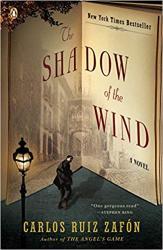
Wonderful mystery reminding me of Umberto Eco. "Anyone who enjoys novels that are scary, erotic, touching, tragic and thrilling should rush right out to the nearest bookstore and pick up The Shadow of the Wind." Really amazing depiction of characters and setting in early 20th century Spain. Captures feeling of fear caused by Spain's political environment and war and aftermath when villainous police. Can't put down type of read.
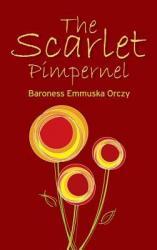
Ever since I saw the inimitable Richard E. Grant in the "The Scarlet Pimpernel" TV series, I have been enamored by these tales from Baroness Orczy. As the cliche goes though, the book is far superior to any adaptation I've seen thus far. After the French Revolution, the new government of France established the "Reign of Terror", where the citizens of France took out their anger and vengeance on any of the old aristocracy that they could find - whether they were guilty of oppressing the people, or not. Enter The Scarlet Pimpernel(!), an elusive daredevil, whose secret league of Englishmen risk their lives to save the aristocratic victims of the people of France. When the government of France charges their agent, Citizen Chauvelin, with discovering the identity of their mysterious enemy, he blackmails Lady Blakeney, a pinnacle of London society, into aiding him in his treacherous task. Who will she turn to, to help save her only brother - her insipidly foppish husband, Sir Percy Blakeney? He may be rich, and the leader of fashion in London's high society, but he's certainly not a "man of action" for something so perilous and vital. Lady Blakeney must face her inner struggles to try to find the hero who she admires so much, only to betray him. Meanwhile, the infamous guillotine awaits her next victims...
Published in 1905, "The Scarlet Pimpernel" established many of the hero tropes that are familiar today, such as having a secret identity, and using disguises and intelligence to outwit one's enemies. This is truly one of my favorite series. If you like this book, there are follow-up chapters, such as "I Will Repay", and "The Elusive Pimpernel", that are worth your attention as well!
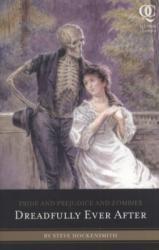
While the original Pride and Prejudice and Zombies was a combination most
people never knew they needed, apparently making it into a trilogy was the
next logical conclusion. Combined with the prequel, Dawn of the Dreadfuls ,
Dreadfully Ever After puts the series to rest with a sequel that seems to
re-hash a lot of similar ideas presented in Pride and Prejudice and Zombies,
but with enough connection to the prequel and at least one or two original
ideas that helped to round out the characters. These new ideas were logical
extrapolations from the events that concluded Pride and Prejudice and
Zombies, so they weren’t necessarily shocking, but still entertaining to
pull the thread nonetheless.
I think, overall, I prefer the prequel and sequel to the original
Austen/monster mashup. It probably helped that both were written by the same
author, who was essentially writing fan fiction based on the idea that this
romantic classic could be combined with the undead. Dawn of the Dreadfuls had
the problem of needing to set up Pride and Prejudice and Zombies, thereby
negating any dire threats to the main characters since they would need to
appear in the next book. However, Dreadfully Ever After does an excellent job
of adding the complexities of marriage in proper English society in the
zombie apocalypse to the mixture. Thus, this book expanded the universe
instead of just poking around its never quite fully-explained origins.
In fact, one might be able to read the books on either side of Pride and
Prejudice and Zombies and get a coherent and satisfying story out of it. I,
for one, struggled through Austen’s writing, so the more modern style
presented in Dawn of the Dreadfuls and Dreadfully Ever After was a welcome
change. Plus, with the ability to stray from the source material and add
additional characters in both “bookend” books, there is a continuity that
is satisfying to conclude in this book. In the end, though, the two books
that expand the Pride and Prejudice and Zombies universe don’t ever take
themselves that seriously and are a fun and silly read for anyone who had a
passing fancy to get into the topic.
A fitting and silly extrapolation of the idea that Jane Austen’s book
needed more gore and violence, I give Dreadfully Ever After 4.0 stars out of
5.
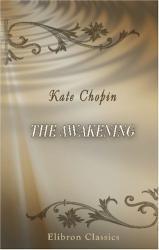
This book is about Mrs. Pontieller, a woman in turn of the 20th century New Orleans. She falls in love and finds herself awakened to a natural state, one that doesn't conform to her life as a wife, mother, and socialite. I liked when Mademoiselle Reitz encouraged her to be a strong bird that defies the laws of gravity and soars above the ground below, not to be weak and come crashing to earth. At the end, Mrs. Pontieller sees a wounded bird fall from the sky and cements her fate likewise.
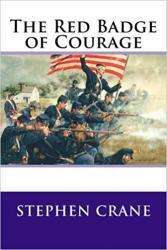
War is an ugly thing full of death and destruction. While most books written today bemoan this fact and complain that wars should never start in the first place, what do the individual soldiers handle a war that they didn’t even start? Set in the Civil War, The Red Badge of Courage is perhaps the best representation of the growth of a soldier from a deserter to a courageous fighter. Our intrinsic fear of death is what motivates so many of us to do the things we do to survive. Overcoming that fear and charging headlong into battle does take a measure of courage usually not present in most people.
Stephen Crane does a fantastic job weaving the story of a young man who has to learn what it truly means to earn the titular “red badge of courage.” His prose is almost poetic as he describes the landscapes, battles, and people who were forced to endure this historic war between brothers. There’s realism to the narrative that immerses the reader into the era and the battles that helped to define the war as a whole. In the end, though, this book could almost be set during any period and any war; the themes present within it are that timeless.
While it took me this long to finally sit down and go through this book, I’m glad I finally did. I had started it many years ago but lost interest for some reason. This time around, I was able to appreciate the story based solely on the strength of Crane’s writing. I know this book is usually assigned to elementary school students at some point, but if it has escaped your “read” list as it did for me, then I would urge you to pick it up and give it a read. It won’t take long, and it’s certainly worth the time spent reading it.
A timeless classic that deals with the human side of war, I give The Red Badge of Courage 4.0 stars out of 5.
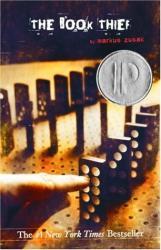
"The Book Thief", an intriguing story that focuses on a little girl living in Nazi Germany, is a delicate and emotional piece that will have you turning the pages until it is finished. This story is quick read, though surprising based on the 584 pages, and has you hooked on every word of every sentence of every paragraph. This novel is historical fiction, and is written by the perspective of death. Liesel Meminger, the main character of the story, is a foster child living in the excruciatingly difficult times of Nazi Germany. In the story, she faces so much, many of which happening before she meets her foster parents, only to have more head her way in the face of the war. This book is very raw and emotional, and really puts life as we know it into perspective. If you like historical fiction, real stories, and a happy ending, this book is for you.
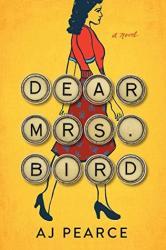
This book was pretty good. It was an easy and fun read. Very formulaic chick lit. The only real problem I had with it is it seemed the author was trying too hard to make the dialog match with the time period. The slang was heavy handed and made me feel as if it had been made by Mad Libs. I would recommend this book if you are looking for something easy and fun to read that takes place in WWII.
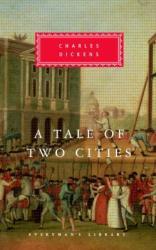
“It was the best of times, it was the worst of times…” The opening lines say it all. I do enjoy Dickens, but this is by far, my favorite novel of his. This book follows the effects and far-reaching ramifications of the arrogant cruelty of the French aristocracy before their Revolution. A man is saved from an unfair imprisonment, but must regain himself through his devoted daughter and friends. They build a new life in England, where we get to know an array of complex characters – each with their own foibles and narratives. Meanwhile the fervor of the people of France veers towards the inevitable overthrow of the tyrannical aristocracy, and as often happens, the oppressed become the new oppressors. Destiny drives our main characters into the French turmoil where they find chaos, danger, and ultimately redemption.
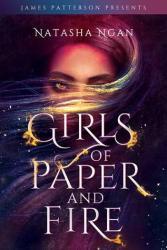
Every year one girl from the lowest caste in each of the 8 provinces is selected to be a Paper Girl - a concubine to the king. Usually, the girls choose to put themselves forth for the selection. But this year, there will be nine girls. Lei, the ninth, was ripped from her home by a General trying to curry favor with the King. And unlike the other paper girls, this was in no way a choice for her. As she learns more about her fellow Paper Girls and life in the palace, she becomes further disgusted with the caste systems and the concept of Paper Girls. And she'll do everything in her limited power to defy the king - even if it costs her her life.
Girls of Paper and Fire was awesome. I've been burned by heavily hyped diverse YA fantasy lately (Children of Blood and Bone, Mirage), but luckily for me, this one did not disappoint. The premise sounded fairly...gross for lack of a better word - a girl stripped from her home against her will to become a concubine to the king. You know there's going to be some unconsensual sex happening. And there was, but it was handled really well by the author. She takes a very sensitive issue and does not sensationalize it. In fact, its presented in such a way that women who have had similar experiences might find some solace in the book, which, if you read the Afterword, was clearly the author's intention.
Unlike some YA fantasy, this was a slowly paced book that was mostly about developing our main character. Lei really grew as a woman and a person throughout the course of the book. She stands up for her beliefs, herself, her body, even though it almost gets her killed. There's also romance, and its a slowly developed, realistic story of love in the worst of times. The worldbuilding was stunning - the setting was Malaysia inspired, and the formation of the three different castes and their traditions was well thought out and presented in such as way as to be simultaneously creepy and gorgeous. My two complaints are fairly minor: there were a few very predictable plot elements, and the writing occasionally leaned into too flowery territory. Otherwise, though, I loved it.
If you are looking for a feminist fantasy read with excellent worldbuilding and character development, you won't go wrong with Girls of Paper and Fire. 5 stars.
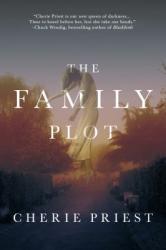
This book provides a unique twist on the classic haunted house story. A salvage crew combs through an ancient house to save its architectural treasures before the house is demolished. The crew’s presence disturbs more than dust though, as a vicious spirit starts to attack the crew, who had made the unfortunate decision to sleep in the house to save on their budget. If they abandon the job, it could mean the end of the family business, but staying gets increasingly unbearable. I think I read this book entirely over the course of a few nights – I didn’t want to put it down! Hollywood has been notorious for sequels and prequels of established “brands”. I highly suggest that they snap up the movie rights for The Family Plot, and give their audience something rich and original.
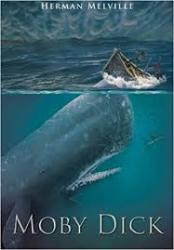
Moby Dick is a classic piece of literature, an iconic masterpiece. The story, once it pick up, is extremely engaging and interesting. The characters, such as Ishmael and Captain and Ahab, all exude personality and uniqueness. Plus, it has one of the greatest antagonists in all of literature: Moby Dick himself. I thoroughly enjoyed this novel from beginning to end. There are some downsides, such as the language of the seamen being somewhat hard to grasp, and the several chapters describing whaling or the anatomy of whales being completely pointless. However, these do not detract too much from the overall experience, and the novel is still an exceptional one. I would recommend this to anyone who is looking for a good novel to read, or anyone who has a passion for the ocean.
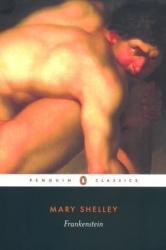
The classic tale of mystery and horror is also one that is an extremely entertaining read. While it may not be the scariest novel ever, the mere ideas that it presents are certain to make one a bit uneasy. The plot is iconic: Victor Frankenstein, aspiring philosopher and scientist, creates a horrifying monster out of dead bodies and reanimates it from the dead. The monster then goes on a murderous rampage after being rejected by his very creator. The novel is very good, and the message it presents, of not overreaching for knowledge, is a timeless one. The only downside to this icon of horror is that some chapters tend to drag, and have little purpose. However, this is not a huge detriment since the rest of the novel is so entertaining. I would recommend to thriller or horror enthusiasts.
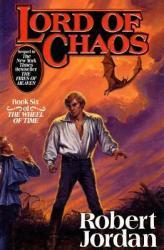
While the first five novels in the Wheel of Time series were near masterpieces in their own right, the sixth entry is where the series begins to peter out a bit. Whereas the previous novels were compelling high fantasy adventures, this one seems to exist in more of the vein of a drama. Intense magical battles and high stakes plots to unravel are here replaced with the female characters prattling on about the color and feel of their dresses, or complaining about men with each other. Additionally, there is an enormous cast of characters to keep track of, which does tend to drag the novel down and make it more confusing than it needs to be. True, this was also a problem in the the first five novels, but compounded with the sometimes boring plot and mundane female characters it becomes a much more noticeable problem. Most of the novel is people sitting around postulating for power and talking. However, there are some things to be appreciative of, such as the political intrigue, chapters from the Forsaken point of view, and the return to Shadar Logoth, but these things just don't help the novel in the long run. I would recommend it to anyone who has read the previous five books.
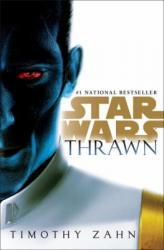
This book was amazing. It is a must-read for Si-Fi and Star Wars fans.
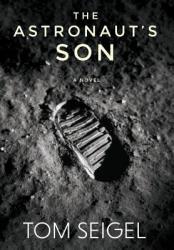
***THIS BOOK WAS RECEIVED FROM A GOODREADS GIVEAWAY***
While the modern landscape for space exploration is expanding in ways that are very exciting, it’s interesting to read a story set in the early 2000’s that actually accomplishes something that hasn’t happened in decades: landing on the moon. And yet, this part of the plot of The Astronaut’s Son takes a minor role when compared with the primary thrust of the story. Sure, I would have thought that there would be plenty of things to occupy an astronaut’s time in the lead-up to a significant accomplishment, but apparently, there’s plenty of free time to explore the validity of a conspiracy theory.
I’ll admit that I never thought that there would be Nazi sympathizers in the space program, but The Astronaut’s Son brings up a few interesting and perhaps semi-plausible ideas. These are explored via the main character’s investigation as to whether his father’s sudden death would was truly due to a health condition that could affect him during his own mission, or if it was due to more sinister circumstances. Despite not ever seeming to deliver straight answers, the journey was still exciting and entertaining. The story may be fictional, but there did seem to be some deep-seated elements that had the possibility of being true, thus helping to suspend my disbelief.
Some of the other subplots, like the birth of a child and numerous characters’ marital infidelities, were interesting for character development, even if I thought they would have affected the main plot more than they did. After all, wouldn’t it be more interesting if there wasn’t even a genetic link between the main character and his father after all? At any rate, I was certainly blown away by this book at first, and it wowed me with its writing and style. However, if you think too much about it, you’ll start to realize there are some holes in it that can’t entirely be covered up, regardless of its entertainment value.
An interesting and perhaps plausible exploration of Germans and Jews in the space program, I give The Astronaut’s Son 4.0 stars out of 5.
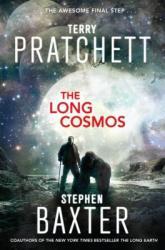
By the time I reached the end of the Long Earth series, I had a revelation. With the bounding conditions of the universe being that there are multiple worlds accessible via stepping and that no iron can pass between worlds, the ideas to explore these multiple worlds are almost endless. My revelation was that this series would have been better as an anthology of short stories from a collection of authors, instead of a handful of semi-disjointed novels that didn’t ever quite know what they were doing. The story never shined through, instead of feeling like a distracted three-year-old who wants to explore the potential of other worlds.
While I felt the series was starting to succeed in telling coherent and solid plots, this book removed that forward progress. When nearly one-third of the first part of the book seems to be comprised entirely of summary and recaps of the last four books, you know there’s not a lot of original ideas present in this one. And while minor tangents like the Johnny Shakespeare side-plot were amusing, they were loosely connected to the main plot at best. Even this main plot didn’t feel like it had enough time spent on it, as the main character of Joshua Valienté seemed to spend most of his time distracted on other worlds with unique trees instead of exploring the Long Cosmos that this book was supposed to be describing.
Even though this book was released after Terry Pratchett's death, it was clear he still had some of his influence on the plot and characters. Unfortunately, as was the case in the other books of the series, his contributions seemed to be fairly obvious, as they were the ones that didn’t quite fit in with everything else and just managed to be silly in an otherwise scientific exploration of new worlds.
The final book in a series that should have been an anthology, I give The Long Cosmos 2.5 stars out of 5.
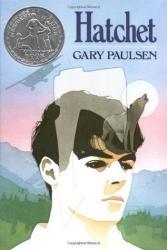
The award winning book by Gary Paulsen, Hatchet, is about a boy named Brian
whose parents are divorced. Right before, Brian gets on the plane that would
take him to his Dad’s house, his mother gives him a hatchet. While flying
over the 1000s of miles of forests in Canada, the pilot has a heart attack
and dies. Brian is forced to fly the plane into a lake in the middle of the
forest. Somehow he survives the crash, but now he is stranded in the
wilderness. He must survive against the harshness of nature with only his
mind and the hatchet to help him.
The realistic scenarios make the reader feel like they are trapped in the
forest with Brian. It was interesting to think about what would have happened
if he did not have the hatchet with him and the reader wonders what they
would do in Brian’s place. Would they be able to survive until help came
and make life or death decisions?
Hatchet is actually the original book in what Paulsen turned into a five book
series. I would recommend reading the whole series, it really deepens the
view of the story. My personal favorite is the second book, Brian’s Winter,
but the entire story is definitely worth reading. 8th Grade.
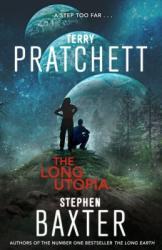
After the events that take place in The Long Mars , I was expecting the next book in the series, The Long Utopia, to be about the CEO of the Black Corporation and the settlement he established to help him live longer. Instead, I got a story that had little to no connection to the previous plots. That being said, at least there was a story with a projected conclusion instead of merely a series of random events that eventually led to the sudden destruction of some location (as had been the case up until now).
While I did appreciate some of the back-story for Joshua Valienté, there wasn’t anything in Joshua’s behavior or motivations in any of the previous books that indicated that he was even interested in learning about his past. I also was pleased that some of the “limitations” of this universe were brought back, or at least provided as a reminder to the reader. It honestly doesn’t make sense to me that these parallel worlds would have the kind of technology available to them without the use of iron. The fact that the material workarounds were never explained is probably the most frustrating part to me.
As I mentioned already, the stronger story in this book helped keep me invested in the characters, not only as they tried to figure out what was happening, but as they tried to determine how to stop it. Unfortunately, none of the consequences in this universe seem to hold any weight. Lobsang can “die,” but there are still plenty other versions of him around. The Next can be mostly exterminated, but then the next book just glosses over the attempted genocide. In the end, though, I can’t honestly tell you what the titular “Utopia” of this book was, and that’s disappointing.
A slightly above-average chapter in the Long Earth series, I give The Long Utopia 3.0 stars out of 5.
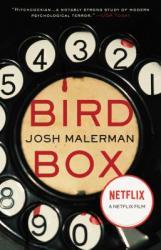
Imagine, you are a mom who has had to raise her two kids in a world where going outside was a major undertaking. No! This world is not filled with the usual “monstrous suspects” you come to expect in horror novels, vampires, werewolves etc.. this evil is unseen and unknown. It can’t be known, for you see, the moment any person glimpses it, this “evil” drives them to unspeakable violence and shortly after, their own death. The world didn’t used to be like this, it used to be normal but since “the evil” infested our world, things have never been the same. This evil leaves no survivors, and no one can stop it because no one can see it. It simply is unbeatable.
Malorie and her two children live in this world where evil can ravage anyone if you were just to step outside. To protect her and her children she raises them and teaches herself, to live life almost completely blind with a blindfold on most of the time. They do the best they can, holed up in their home trying to survive. One day through their meager means of communication Mallorie hears of this place 20 miles downriver where her and her family might be safe. But only if they can get there. Malorie and her kids, soon after, set out on a harrowing and terrifying journey downriver, all while wearing blindfolds, that will test them in ways they couldn’t have imagine.
Mallerman creates a horrifying and terrifying experience for readers that will leave them continually guessing. The strength of this story is also what makes it the best kind of horror. It’s unknowable and theirs a mystery around every corner. It could be something that could turn out to be a monster or something that could help the hero’s on their journey. The tense and creepy atmosphere Mallerman creates from the character’s surroundings also adds to the overall terrifying and mysterious aura of the story. Add to this that the evil so talked about throughout the book, is never actually revealed. Mallerman does a brilliant job of revealing some things but not everything leaving the readers imagination to make up the rest. And that is the strength of this book really, it turns the readers mind against them. Highly original and so creepy this book is a solid five stars. Pick up this intense terrifying psychological horror story today. And check out the movie coming to Netflix this December. I promise you, you won’t regret it!
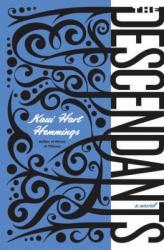
On paper, the plot of The Descendants almost sounds like a bad soap opera. A man who has the deciding vote that could mean wealth for him and his extended family is dealing with an unfaithful wife who is in a life-threatening coma. The execution of this plot, however, brings so much humanity to the forefront that I wouldn’t be surprised if any of these events were real. While I loved the movie adaptation of this book, the first-person narrative of the book helped add so much more depth to the story. It’s difficult to get into the main character’s head when there’s no internal monologue like in the movie.
Of course, with such realistic and vulnerable characters, there were bound to be a few that I didn’t like. Ironically enough, I hated the comatose wife. Sure, her husband was probably a bit of a workaholic, but he always meant well and was practically saint-like in his dealings with her, her family, and her friends after her accident. I think the most significant part of my dislike of the wife was how much she seemed to screw up her kids. Throughout almost the entire book, the main character is trying to control his out-of-control daughters, and it becomes abundantly clear where they got their tendency for poor life decisions.
In the end, I probably wouldn’t like the wife character if I met her in real life, which is why I didn’t like her in this book. That says a lot about the realism of the writing here. To be able to create a character that I reacted to on an emotional level (even if it was a negative emotion), with nothing more than what other characters said or remembered about her speaks volumes to the author’s talent. If anything, the contrast of the main character was heightened because of it and showed how noble and upstanding his actions were in the midst of crisis and significant life changes.
An expertly-written book full of juicy drama, I give The Descendants 4.5 stars out of 5.


